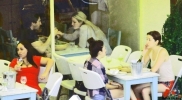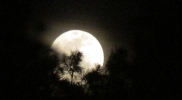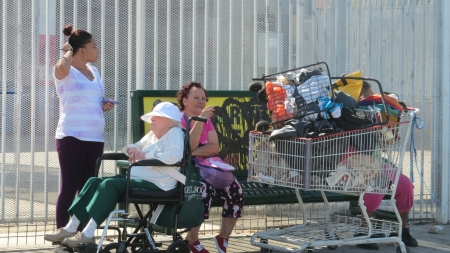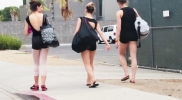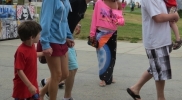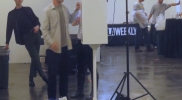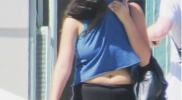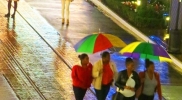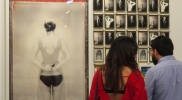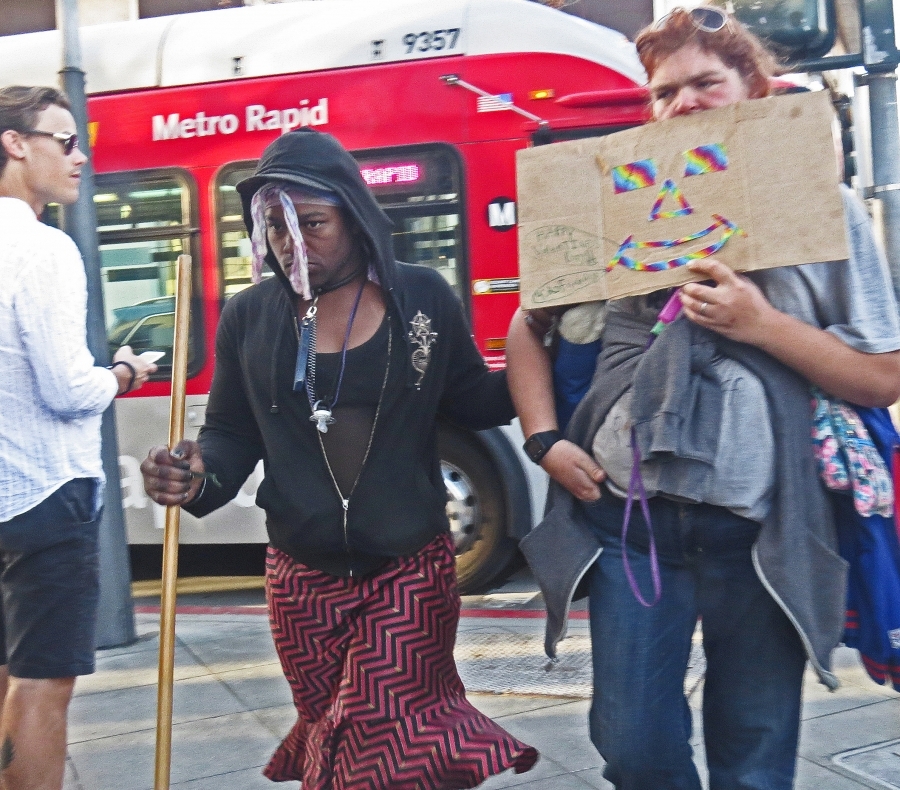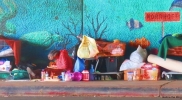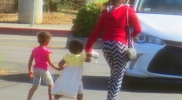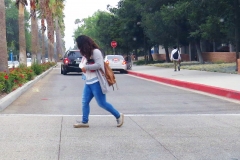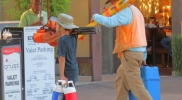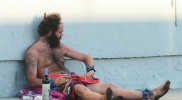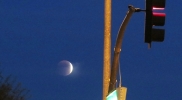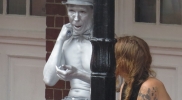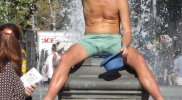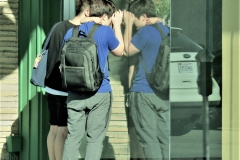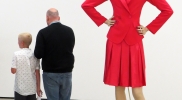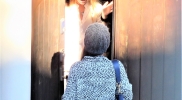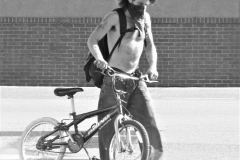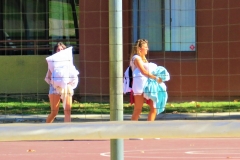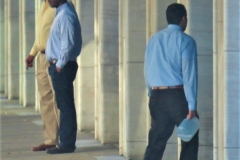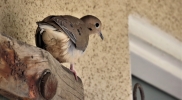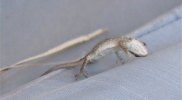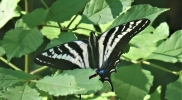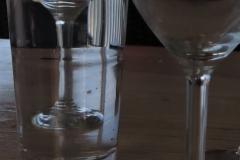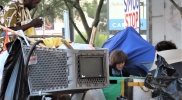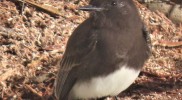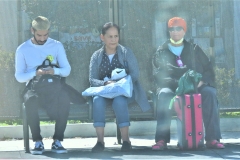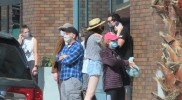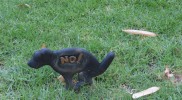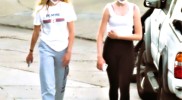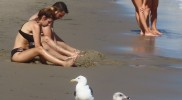|
|
Best Poems - Aging
Best Poems – AGING
|
Unwelcome – Anonymous
“OLD age is not a friend I care to see.
If some day he should come to visit me,
I’ll bar the door, and shout,
‘Most Honored Guest, I’m out.’” |
|
Growing Old – Mathew Arnold
“What is it to grow old?
Is it to lose the glory of the form,
The luster of the eye?
Is it for beauty to forego her wreath?
—Yes, but not this alone.
Is it to feel our strength—
Not our bloom only, but our strength—decay?
Is it to feel each limb
Grow stiffer, every function less exact,
Each nerve more loosely strung?
Yes, this, and more; but not
Ah, ’tis not what in youth we dream’d ’twould be!
’Tis not to have our life
Mellow’d and soften’d as with sunset-glow,
A golden day’s decline.
’Tis not to see the world
As from a height, with rapt prophetic eyes,
And heart profoundly stirr’d;
And weep, and feel the fullness of the past,
The years that are no more.
It is to spend long days
And not once feel that we were ever young;
It is to add, immured
In the hot prison of the present, month
To month with weary pain.
It is to suffer this,
And feel but half, and feebly, what we feel.
Deep in our hidden heart
Festers the dull remembrance of a change,
But no emotion—none.
It is—last stage of all—
When we are frozen up within, and quite
The phantom of ourselves,
To hear the world applaud the hollow ghost
Which blamed the living man.”
|
| Song Of An Old Woman – Jane Bowles
“Oh, I’m sad for never knowing courage,
And I’m sad for the stilling of fear.
Closer to the sun now and farther from the heart.
I think that my end must be near.
I linger too long at a picnic,
’cause a picnic’s gayer than me.
And I hold to the edge of the table,
’cause the table’s stronger than me,
And I lean on anyone’s shoulder
because anyone’s warmer than me.
Oh, I’m sad for never knowing courage,
And I’m sad for the stilling of fear.
Closer to the sun now and farther from the heart.
I think that my end must be near.” |
| The River Of Life – Thomas Campbell
“The more we live, more brief appear
Our life’s succeeding stages;
A day to childhood seems a year,
And years like passing ages.
The gladsome current of our youth,
Ere passion yet disorders,
Steals lingering like a river smooth
Along its grassy borders.
But as the careworn cheek grows wan,
And sorrow’s shafts fly thicker,
Ye stars, that measure life to man,
Why seem your courses quicker?
When joys have lost their bloom and breath,
And life itself is vapid,
Why, as we reach the Falls of Death
Feel we its tide more rapid?
It may be strange—yet who would change
Time’s course to slower speeding,
When one by one our friends have gone,
And left our bosoms bleeding?
Heaven gives our years of fading strength
Indemnifying fleetness;
And those of youth, a seeming length,
Proportion’d to their sweetness.” |
| To-morrow – John Collins
“In the downhill of life, when I find I’m declining,
May my fate no less fortunate be
Than a snug elbow-chair can afford for reclining,
And a cot that o’erlooks the wide sea;
With an ambling pad-pony to pace o’er the lawn,
While I carol away idle sorrow,
And blithe as the lark that each day hails the dawn
Look forward with hope for to-morrow.
With a porch at my door, both for shelter and shade too,
As the sun-shine or rain may prevail;
And a small spot of ground for the use of the spade too,
With a barn for the use of the flail:
A cow for my dairy, a dog for my game,
And a purse when a friend wants to borrow;
I’ll envy no nabob his riches or fame,
Nor what honours may wait him to-morrow.
From the bleak northern blast may my cot be completely
Secured by a neighbouring hill;
And at night may repose steal upon me more sweetly
By the sound of a murmuring rill:
And while peace and plenty I find at my board,
With a heart free from sickness and sorrow,
With my friends may I share what today may afford,
And let them spread the table to-morrow.
And when I at last must throw off this frail covering,
Which I’ve worn for three-score years and ten,
On the brink of the grave I’ll not seek to keep hovering,
Nor my thread wish to spin o’er again:
But my face in the glass I’ll serenely survey,
And with smiles count each wrinkle and furrow;
And this old worn-out stuff, which is threadbare today,
May become everlasting to-morrow.” |
| After a Time – Catherine Davis
“After a time, all losses are the same.
One more thing lost is one thing less to lose;
And we go stripped at last the way we came.
Though we shall probe, time and again, our shame,
Who lack the wit to keep or to refuse,
After a time, all losses are the same.
No wit, no luck can beat a losing game;
Good fortune is a reassuring ruse:
And we go stripped at last the way we came.
Rage as we will for what we think to claim,
Nothing so much as this bare thought subdues:
After a time, all losses are the same.
The sense of treachery—the want, the blame—
Goes in the end, whether or not we choose,
And we go stripped at last the way we came.
So we, who would go raging, will go tame
When what we have we can no longer use:
After a time, all losses are the same;
And we go stripped at last the way we came.” |
Alzheimer’s Revisited-Thomas DeBaggio (from Losing My Mind: An Intimate Look at Life with Alzheimer’s)
“Today I heard the voice of a 58-year old man,
as he spoke of losing his memory
word by word, thought by thought.
He said, ‘The only thing I never forget
is that I have Alzheimer’s disease’…” |
|
|
Visit – Chitra Divakaruni
“I peel off your plastic underwear,
wipe the damp crud crusting folds of skin.
My fingers probe where a daughter
should never go. I try
to gentle them but you flinch away
and will not look at me. Your shame
fills the room, rusty odor
of urine, the stains
down the front of your robe.
The bathing takes so long, wrinkle
by wrinkle, hair by matted hair.
Your breasts sagging into tepid water.
The large circles of washcloth
on armpit and thigh. You close
your eyes and mouth, pale
tight slits, against me. When
I lift you out, porous, weightless,
and wrap you in towels,
you cannot stop the shaking.
Through the meal I talk and talk
to fill the hollows of your bones
with my futile voice. You part
your lips, obedient to my spoon:
mashed potatoes, strained carrot soup,
soaked bread. Perhaps a boiled egg
tonight, I ask, apples chopped fine,
cooked soft. I show you pictures
of my daughters—birthdays, visits
to the zoo. You smile
at the bright shapes, then look
through me. The skin around your eyes
creases in concentration
at something I cannot see.
If I told you that tonight
I must pack your things, that tomorrow
they will take you to Sunnyside Manor,
would you know to weep?
To remember how at Gorakhpur
when your father broke his hip,
you kept him with you? Year after year
cleaned the bedsores opening their mouths
like red flowers?
to ask why I cannot?
There is so much I’ve no answers for:
why the cloudless afternoon
outside your window is jagged
by lightening and a sound so fierce
you hold your head and moan.
Why I bend into the floor’s grime
and scrub, teeth clamped, until I ache,
jaw and nail and knee. Why
seeing again the forgotten blue tiles
of your kitchen, your eyes fill
in the phenol air, raw sting whiff
of cadaver labs. Why as the dark
seeps around your bed you at last
grip my hand hard, not letting go,
as though forever were a possible truth.” |
Turning Forty in the 90’s – Melvin Dixon
“We promised to grow old together, our dream
since years ago when we began
to celebrate our common tenderness
and touch. So here we are:
Dry, ashy skin, falling hair, losing breath
at the top of the stairs, forgetting things.
Vials of Septra and AZT line the bedroom dresser
like a boy’s toy army poised for attack—
your red, my blue, and the casualties are real.
Now the dimming in your man’s eyes and mine.
Our bones ache as the muscles dissolve,
exposing the fragile gates of ribs, our last defense.
And we calculate pensions and premiums.
You are not yet forty-five, and I
not yet forty, but neither of us for long.
No senior discounts here, so we clip coupons
like squirrels in late November, foraging
each remaining month or week, day or hour.
We hold together against the throb and jab
of yet another bone from out of nowhere poking through.
You grip the walker and I hobble with a cane.
Two witnesses for our bent generation.”
|
|
|
|
|
| Sickness Blues – Allen Ginsberg
“Lord Lord I got the sickness blues, I must’ve done something wrong.
There ain’t no lord to call on, now my youth is gone.
Sickness blues, don’t want to fuck no more
Sickness blues, can’t get it up nor more
Tears come in my eyes, feel like an old tired whore
I went to see the doctor, he shot me with poison germs
I got out of the hospital, my head was full of worms
All I can think is Death, father’s getting old
He can’t walk half a block, his feet feel cold
I went down to Santa Fe take vacation there
Indian’s selling turquoise in adobe huts in Taos Pueblo Square
Got headache in La Fonda, I could get sick anywhere
Must be my bad karma, fuckin these pretty boys
Hungry ghosts chasing me, because I been chasing joys
Lying here in bed alone, playing with my toys
I musta been doing something wrong meat & cigarettes
Bow down before my lord, 100 thousand regrets
All my poems down in hell, that’s what pride begets
Sick and angry, lying in my hospital bed
Doctor Doctor bring morphine before I’m totally dead
Sick and angry at the national universe O my aching head
Someday I’m gonna get out of here, go somewhere alone
Yeah I’m going to leave this town with noise of rattling bone
I got the sickness blues, you’ll miss me when I’m gone.” |
|
|
Walking At Night – Louise Glück
“Now that she is old,
the young men don’t approach her
so the nights are free,
the streets at dusk that were so dangerous
have become as safe as the meadow.
By midnight, the town’s quiet.
Moonlight reflects off the stone walls;
on the pavement, you can hear the nervous sounds
of the men rushing home to their wives and mothers; this late,
the doors are locked, the windows darkened.
When they pass, they don’t notice her.
She’s like a dry blade of grass in a field of grasses.
So her eyes that used never to leave the ground
are free now to go where they like.
When she’s tired of the streets, in good weather she walks
in the fields where the town ends.
Sometimes, in summer, she goes as far as the river.
The young people used to gather not far from here
but now the river’s grown shallow from lack of rain, so
the bank’s deserted—
There were picnics then.
The boys and girls eventually paired off;
after awhile, they made their way into the woods
where it’s always twilight—
The woods would be empty now—
the naked bodies have found other places to hide.
In the river, there’s just enough water for the night sky
to make patterns against the gray stones. The moon’s bright,
one stone among many others. And the wind rises;
it blows the small trees that grow at the river’s edge.
When you look at a body you see a history.
Once that body isn’t seen anymore,
the story it tried to tell gets lost—
On nights like this, she’ll walk as far as the bridge
before she turns back.
Everything still smells of summer.
And her body begins to seem again the body she had as a young woman,
glistening under the light summer clothing.”
|
| All Gone? – Florence Claudia Grubb
“They’re gone—
Those days of summer,
With crimson and with gold.
And now we see ahead of us
Bleak autumn’s scroll unrolled.
It’s gone—
My youth of vigor,
Adventurous and bold,
And now I see ahead of me
Ripe age—for growth or mold?” |
|
|
| My Aunt – Oliver Wendell Holmes
“MY aunt! my dear unmarried aunt!
Long years have o’er her flown;
Yet still she strains the aching clasp
That binds her virgin zone;
I know it hurts her,—though she looks
As cheerful as she can;
Her waist is ampler than her life,
For life is but a span.
My aunt! my poor deluded aunt!
Her hair is almost gray;
Why will she train that winter curl
In such a spring-like way?
How can she lay her glasses down,
And say she reads as well,
When through a double convex lens
She just makes out to spell?
Her father—grandpapa! forgive
This erring lip its smiles—
Vowed she should make the finest girl
Within a hundred miles;
He sent her to a stylish school
’Twas in her thirteenth June;
And with her, as the rules required,
‘Two towels and a spoon.’
They braced my aunt against a board,
To make her straight and tall;
They laced her up, they starved her down,
To make her light and small;
They pinched her feet, they singed her hair,
They screwed it up with pins;—
O never mortal suffered more
In penance for her sins.
So, when my precious aunt was done,
My grandsire brought her back;
(By daylight, lest some rabid youth
Might follow on the track;)
‘Ah!’ said my grandsire, as he shook
Some powder in his pan,’What could this lovely creature do
Against a desperate man!’
Alas! nor chariot, nor barouche,
Nor bandit cavalcade,
Tore from the trembling father’s arms
His all-accomplished maid.
For her how happy had it been!
And Heaven had spared to me
To see one sad, ungathered rose
On my ancestral tree.” |
|
|
| Hymeneal Retrospections – Thomas Hood
“O Kate! my dear Partner, through joy and through strife!
When I look back at Hymen’s dear day,
Not a lovelier bride ever chang’d to a wife,
Though you’re now so old, wizen’d, and grey!
Those eyes, then, were stars, shining rulers of fate!
But as liquid as stars in a pool;
Though now they’re so dim, they appear, my dear Kate,
Just like gooseberries boil’d for a fool!
That brow was like marble, so smooth and so fair;
Though it’s wrinkled so crookedly now,
As if time, when those furrows were made by the share,
Had been tipsy whilst driving his plough!
Your nose, it was such as the sculptors all chose,
When a Venus demanded their skill;
Though now it can hardly be reckon’d a nose,
But a sort of Poll-parroty bill!
Your mouth, it was then quite a bait for the bees,
Such a nectar there hung on each lip;
Though now it has taken that lemon-like squeeze,
Not a blue-bottle comes for a sip!
Your chin, it was one of Love’s favorite haunts,
From its dimple he could not get loose;
Though now the neat hand of a barber it wants,
Or a singe, like the beast of a goose!
How rich were those locks, so abundant and full,
With their ringlets of auburn so deep!
Though now they look only like frizzles of wool,
By a bramble torn off from a sheep!
That neck, not a swan could excel it in grace,
While in whiteness it vied with your arms;
Though now a grave ‘kerchief you properly place,
To conceal that scrag-end of your charms!
Your figure was tall, then, and perfectly straight,
Though it now has two twists from upright—
But bless you! still bless you! my Partner! my Kate!
Though you be such a perfect old fright!” |
|
|
| Next Day – Randall Jarrell
“Moving from Cheer to Joy, from Joy to All,
I take a box
And add it to my wild rice, my Cornish game hens.
The slacked or shorted, basketed, identical
Food-gathering flocks
Are selves I overlook. Wisdom, said William James,
Is learning what to overlook. And I am wise
If that is wisdom.
Yet somehow, as I buy All from these shelves
And the boy takes it to my station wagon,
What I’ve become
Troubles me even if I shut my eyes.
When I was young and miserable and pretty
And poor, I’d wish
What all girls wish: to have a husband,
A house and children. Now that I’m old, my wish
Is womanish:
That the boy putting groceries in my car
Sees me. It bewilders me he doesn’t see me.
For so many years
I was good enough to eat: the world looked at me
And its mouth watered. How often they have undressed me,
The eyes of strangers!
And, holding their flesh within my flesh, their vile
Imaginings within my imagining,
I too have taken
The chance of life. Now the boy pats my dog
And we start home. Now I am good.
The last mistaken,
Ecstatic, accidental bliss, the blind
Happiness that, bursting, leaves upon the palm
Some soap and water—
It was so long ago, back in some Gay
Twenties, Nineties, I don’t know . . . Today I miss
My lovely daughter
Away at school, my sons away at school,
My husband away at work—I wish for them.
The dog, the maid,
And I go through the sure unvarying days
At home in them. As I look at my life,
I am afraid
Only that it will change, as I am changing:
I am afraid, this morning, of my face.
It looks at me
From the rear-view mirror, with the eyes I hate,
The smile I hate. Its plain, lined look
Of gray discovery
Repeats to me: ‘You’re old.’ That’s all, I’m old.
And yet I’m afraid, as I was at the funeral
I went to yesterday.
My friend’s cold made-up face, granite among its flowers,
Her undressed, operated-on, dressed body
Were my face and body.
As I think of her and I hear her telling me
How young I seem; I am exceptional;
I think of all I have.
But really no one is exceptional,
No one has anything, I’m anybody,
I stand beside my grave
Confused with my life, that is commonplace and solitary.” |
|
|
|
Warning – Jenny Joseph
“When I am an old woman, I shall wear purple
With a red hat which doesn’t go,
and doesn’t suit me.
And I shall spend my pension on brandy
And summer gloves and satin sandals
And say, ‘We’ve no money for butter.’
I shall sit down on the pavement when I’m tired.
And gobble up samples in shops
And press alarm bells,
And run my stick along the public railings,
And make up for the sobriety of my youth.
I shall go out in my slippers in the rain,
And pick flowers in other people’s gardens,
And learn to spit.
You can wear terrible shirts,
And grow more fat,
And eat three pounds of sausages at a go,
Or only bread and pickles for a week,
And hoard pens and pencils and beermats
And things in boxes.
Yes, but now we must have clothes that keep us dry,
And pay the rent
And not swear in the street,
And set a good example for the children,
And must have friends to dinner,
And read the papers.
But maybe I ought to practice a little now,
So people who know me are not too shocked
and surprised
When suddenly I am old and start to wear purple.”
|
| Age – Walter Savage Landor
“Death, tho I see him not, is near
And grudges me my eightieth year.
Now, I would give him all these last
For one that fifty have run past.
Ah! he strikes all things, all alike,
But bargains: those he will not strike.” |
|
|
| When I Am Very Old – Richard Le Gallienne
“When I am very old and none there is
To lift their lips to mine, a flower’s cup,
When I have drunken all life’s vintage up,
And none shall find me good to see or touch,
And only Death shall find me good to kiss;
I think I shall not sorrow overmuch,
So long as April bares her flowering breast
In secret woodlands, and, with eyes of dew,
Lies to the others as once to me and you!” |
|
|
| Of An Older Woman – Adelaide Love
“Her days are rich with mellow harvesting,
With ripened hopes and dreams of vanished spring,
And though the flower be lost, yet from the tree
Full-flavored fruit is hers abundantly.
Frost may have touched the garden of her life
But beauty all her pathway interweaves
For memories lie strewn before her feet
Like glamours and golden fallen leaves.” |
|
|
| Tragic Youth – Adelaide Love
“When first we met I thought: ‘What tragic youth!
Has disillusion drained that weary girl
Of radiance?’ And then I learned the truth—
That she was old but, like a miser’s pearl,
Her beauty had been guarded from the thief
Of time by every ruse, by every care,
And so she still looked young beyond belief.
But what an unillumined youth was there!
How much more beautiful and vital age
Appeared beside that strangely youthful face
Deprived of its ennobling heritage
Of lines that mark the spirit’s growing grace.
The shell of youth was all that she could claim;
The thief she hoped to thwart had snatched the flame.” |
| Fifth Decade Tribulations – Anne Marple
“The trouble with being young inside
and old outside
is that you can misinterpret signals.
Some not-all-that-young looking guy
hangs on every word
can’t take his eyes off me
and it turns out he’s wondering
if I could have been his kindergarten teacher.
And I was.
I’d cleaned the house and washed my hair too.
although I hadn’t gone so far as to change the sheets.
Last Friday I did
thinking that Valentine’s Day might bring me luck.
It didn’t.
I came home alone
which was just as well.
The Siamese had thrown up on my pillows.
Pets help.
I have three that fight over who gets in bed first.
It’s hard to feel unloved
with so much furry attention
but I manage.
Once in a while I’m the Queen of Sheba.
It depends a lot
on the man in my life
At this age there isn’t one most of the time.
When there is I go to a lot of trouble.
Like for the Italian.
I borrowed back my etchings of Rome
from my almost ex-husband
and read Virgil.
It didn’t pay off.
’85 was a good year.
I had two dates—actually 4 dates
two daters.
#1 got the most attention.
New matching pink half slip, pants and panty hose
Laura Ashley lavender sheets
orange chrysanthemums in my art deco Limoge vase
pressed logs burning in the fireplace
perfume in the pubic hair.
#2 got
clean underwear
clean sheets
perfume
no flowers
no log.
Sometimes you’re better off alone
Last summer
I met a health food nut
at the Napa Poetry conference.
He ate slices of garlic
and oranges for breakfast.
He said that to escape the 20th century
he paddled a canoe on Newport Bay
chanting Hiawatha.
Two four-letter words turned him on
cock
cunt
They flashed from his mouth
like alternating traffic lights.
Afflicted with priapism
he could fuck for hours
but never come.
He said product was nothing, process all.
He wondered why I laughed
but I told him it was a long story.
That guy and his canoe—
he was an absence of anyone.
He forgot about foreplay
after the first time
which still makes me mad
after all these months.
Three minutes of his valuable time.
But no.
He plays macho.
Selfish-pig-time.
pushes me down, growls
‘I’m going to fuck you.’
‘No shit,’ I should have said,
‘I thought you’d taken up tatting,’
but he had no sense of humor.
I like laughing in bed.
I like eating in bed.
reading in bed.
writing in bed.
Bed is a world.” |
|
|
| When I Am Old – Caroline Atherton Briggs Mason
“When I am old—and O, how soon
Will life’s sweet morning yield to noon,
And noon’s broad, fervid, earnest light
Be shaded in the solemn night,
Till, like a story well-nigh told,
Will seem my life—when I am old.
When I am old, this breezy earth
Will lose for me its voice of mirth;
The streams will have an undertone
Of sadness not by right their own;
And Spring’s sweet power in vain unfold
In rosy charms—when I am old.
When I am old, I shall not care
To deck with flowers my faded hair;
‘Twill be no vain desire of mine
In rich and costly dress to shine;
Bright jewels and the brightest gold
Will charm me naught—when I am old.
When I am old, my friends will be
Old and infirm and bowed like me;
Or else (their bodies ‘neath the sod,
Their spirits dwelling safe with God);
The old church bells will long have tolled
Above the rest—when I am old.
When I am old, I’d rather bend
Thus sadly o’er each buried friend
Than see them lose the earnest truth
That marks the friendship of our youth;
‘Twill be so sad to have them cold
Or strange to me—when I am old!
When I am old—O! how it seems
Like the wild lunacy of dreams
To picture in prophetic rhyme
That dim, far-distant, shadowy time—
So distant that it seems o’erbold
Even to say, ‘When I am old.’
Ere I am old—that time is now;
For youth sits lightly on my brow;
My limbs are firm, and strong, and free;
Life hath a thousand charms for me—
Charms that will long their influence hold
Within my heart—ere I am old.
Ere I am old, O! let me give
My life to learning how to live;
Then shall I meet, with willing heart,
An early summons to depart.
Or find my lengthened days consoled
By God’s sweet peace—when I am old.” |
|
|
| Growing Old (II) – Yüan Mei (Trans. by Arthur Waley)
“When I was young and had no money to spend
I had a passionate long for expensive things.
I was always envying people for their fur coats,
For the wonderful things they got to eat and drink.
I dreamt of these things, but none of them came my way,
And in the end I became very depressed.
Nowadays, I have got quite smart clothes,
But am old and ugly, and they do not suit me at all.
All the choicest foods are on my table;
But I only manage to eat a few scraps.
I feel inclined to say to my Creator
‘Let me live my days on earth again,
But this time be rich when I am young;
To be poor when one is old does not matter at all.'” |
|
|
| Peekaboo, I Almost See You – Ogden Nash
“Middle-aged life is merry, and I love to lead it,
But there comes a day when your eyes are all right but
your arm isn’t long enough to hold the telephone book
where you can read it,
And your friends get jocular, so you go to the oculist,
And of all your friends he is the joculist,
So over his facetiousness let us skim,
Only noting that he has been waiting for you ever since
you said Good evening to his grandfather clock under
the impression that it was him,
And you look at his chart and it says SHRDLU QWERTYOP,
and you say Well, why SHRDNTLU QWERTYOP? and he
says one set of glasses won’t do.
You need two.
One for reading Erle Stanley Gardner’s Perry Mason and
Keats’s ‘Endymion’ with,
And the other for walking around without saying Hello to
strange wymion with.
So you spend your time taking off your seeing glasses to
put on your reading glasses, and then remembering that
your reading glasses are upstairs or in the car,
And then you can’t find your seeing glasses again because
without them on you can’t see where they are.
Enough of such mishaps, they would try the patience of
an ox,
I prefer to forget both pairs of glasses and pass my declining
years saluting strange women and grandfather clocks.” |
|
|
| Here – Grace Paley
“Here I am in the garden laughing
an old woman with sagging breasts
and a nicely mapped face
how did this happen
well that’s who I wanted to be
at last a woman
in the old style sitting
stout thighs apart under
a big skirt grandchild sliding
on off my lap a pleasant
summer perspiration
that’s my old man across the yard
he’s talking to the meter reader
he’s telling him the world’s sad story
how electricity is oil or uranium
and so forth I tell my grandson
run over to your grandpa ask him
to sit beside me for a minute I
am suddenly exhausted by my desire
to kiss his sweet explaining lips.” |
|
|
| In The Orchard – Linda Pastan
“Why are these old, gnarled trees
so beautiful, while I am merely
old and gnarled?
If I had leaves, perhaps, or apples…
if I had bark instead
of this lined skin,
maybe the wind would wind itself
around my limbs
in its old sinuous dance.
I shall bite into an apple
and swallow the seeds.
I shall come back as a tree.” |
|
|
| Musings Before Sleep – Linda Pastan
“The lines on my face are starting
to make me look like photographs
of Auden in old age. If the lines
of my poems could also be
as incandescent as his,
would I be willing to look
as worn and wrinkled?
I avoid mirrors now,
particularly when the strong light
of morning reveals what I don’t wish to see,
and sometimes I want to erase
the words I’m putting down,
even as my pen touches
the paper. Sometimes I feel guilty
about growing old and forgetful
and sometimes guilty about spending
so much time tinkering with language,
though tinkering isn’t the word
most writers would use—revision,
we say, which is sometimes holy,
and also something many women do:
revise their faces with rouge or stitches.
Are there two kinds of vanity—
vanity about the beauty
we are born with or without,
and vanity about the beauty
we try to make out of the sticks
and stones of language?
Old age should be a time
of accepting the hand dealt out,
in fact already almost played out.
But in these moments when sleep
is about to take me, when I might be
any age at all, I think again of Auden who,
for the length of a dream at least,
may hold my all too human head
in the hands that wrote those poems.” |
| The Old Men – Ernest Rhys
“We old men,
We are not what we seem
As we go down the street.
In our old eyes
Shine boyhood memories:
We have seen horses swerve,
and vessels sail,
We know the crimson curve
upon a young girl’s cheek.
When we wake at end of night,
We draw a deeper breath
And hail the Lord of Light.
We are not what we seem,
We are not afraid of death
As we go down the street.” |
|
|
| Hands – Ishigaki Rin (trans. by Naoshi Koriyama and Edward Lueders)
“My outspread hands,
the hands in front of me.
These are alive,
alive and moving.
These hands some day will be old.
These hands some day will stop moving.
They will be folded by the hands of others
who will mourn over me,
will be placed on my cold chest,
and stay for a while
in the world where my soul will no longer exist.
Ah, when the outside world is filled with light
and a soft breeze blows just like today,
what will the dry skin of these hands see and feel
for the eyes
that are closed?
Hands,
where will you dispose of
all the memories
of the many things you have held?
Tell me.
(When I look away,
I see a procession of many creatures
moving away one after another
waving their hands like flower petals.
Where are they going?)
Unmistakably, these are the expressions of my hands,
vivid and sad,
of the living hands of my mortal self.
When I put my hands together, they feel strangely warm,
giving me a singular sense,
certain but imperceptible,
that they are mine
and that some day they will be gone.”
|
|
|
| Prayer – Theordore Roethke
If I must of my Senses lose,
I pray Thee, Lord, that I may choose
Which of the Five I shall retain
Before oblivion clouds the brain.
My Tongue is generations dead,
My Nose defiles a comely head;
For hearkening to carnal evils
My Ears have been the very devil’s.
And some have held the Eye to be
The instrument of lechery,
More furtive than the Hand in low
And vicious venery—Not so!
Its rape is gentle, never more
Violent than a metaphor.
In truth, the Eye’s the abettor of
The holiest platonic love:
Lip, Breast and Thigh cannot possess
So singular a blessedness
Therefore, O Lord, let me preserve
The Sense that does so fitly serve,
Take Tongue and Ear—all else I have—
Let light attend me to the grave!” |
|
|
| Soeur Louise De La Misericorde – Christina Rossetti
“I have desired, and I have been desired;
But now the days are over of desire,
Now dust and dying embers mock my fire;
Where is the hire for which my life was hired?
Oh vanity of vanities, desire!
Longing and love, pangs of a perished pleasure,
Longing and love, a disenkindled fire,
And memory a bottomless gulf of mire,
And love a fount of tears outrunning measure;
Oh vanity of vanities, desire!
Now from my heart, love’s deathbed, trickles, trickles,
Drop by drop slowly, drop by drop of fire,
The dross of life, of love, of spent desire;
Alas, my rose of life gone all to prickles,—
Oh vanity of vanities, desire!
Oh vanity of vanities, desire;
Stunting my hope which might have strained up higher,
Turning my garden plot to barren mire;
Oh death-struck love, oh disenkindled fire,
Oh vanity of vanities, desire!” |
|
|
| Personal Letter No. 3 – Sonia Sanchez
“nothing will keep
us young you know
not young men or
women who spin
their youth on
cool playing sounds,
we are what we
are what we never
think we are.
no more wild geo
graphies of the
flesh, echoes, that
we move in tune
to slower smells.
it is a hard thing
to admit that
sometimes after midnight
I am tired
of it all.” |
|
|
| A Madrigal – William Shakespeare
“Crabbed Age and Youth
Cannot live together;
Youth is full of pleasance,
Age is full of care;
Youth like summer morn,
Age like winter weather,
Youth like summer brave,
Age like winter bare:
Youth is full of sport,
Age’s breath is short,
Youth is nimble, Age is lame:
Youth is hot and bold,
Age is weak and cold,
Youth is wild, and Age is tame—
Age, I do abhor thee,
Youth, I do adore thee;
O! my Love, my Love is young!
Age, I do defy thee—
O sweet shepherd, hie thee,
For methinks thou stay’st too long.” |
|
|
| Sonnet II – William Shakespeare
“When forty winters shall besiege thy brow,
And dig deep trenches in thy beauty’s field,
Thy youth’s proud livery, so gazed on now,
Will be a totter’d weed of small worth held:
Then being asked, where all thy beauty lies,
Where all the treasure of thy lusty days,
To say, within thine own deep-sunken eyes,
Were an all-eating shame, and thriftless praise.
How much more praise deserved thy beauty’s use,
If thou couldst answer ‘This fair child of mine
Shall sum my count, and make my old excuse,’
Proving his beauty by succession thine!
This were to be new made when thou art old,
And see thy blood warm when thou feel’st it cold.” |
| From a Correct Address in a Suburb of a Major City – Helen Sorrells
“She wears her middle age like a cowled
gown, sleeved in it, folded high
at the breast,
charming, proper at cocktails
but the inner one raging
and how to hide her,
how to keep her leashed, contain
the heat of her, the soaring cry
never yet loosed,
demanding a chance before the years devour her,
before the marrow of her fine long legs
congeals and she
settles forever for this street, this house,
her face set to the world
sweet, sweet
above the shocked, astonished
hunger.” |
| The Lady’s Complaint – John Heath-Stubbs
I speak of that lady I heard last night,
Maudlin over her gin and water,
In a sloppy bar with a fulvous light
And an air that was smeared with smoke and laughter:
How youth decamps and cold age comes after,
In fifty years she had found it true—
She signed for the damage that time had brought her:
‘Oh, after death there’s a judgement due.
‘What once was as sleek as a seal’s pelt,
My shapeless body has fallen from grace;
My soul and my shoes are worn down to the welt,
And no cosmetic can mask my face,
As under talcum and oxide you trace
How the bones stick out, and the ghost peeps through—
A wanderer, I, in Wraith-bone-Place,
And after death there’s a judgement due.
‘My roundabout horses have cantered away,
The gilded and garrulous season are flown;
What echo is left of the rag-time bray
Of the tenor sax and the susaphone?
But I was frightened to sleep alone
(As now I must do, as now I must do)
And a chittering bat-voice pipes “Atone,
For after death there’s a judgement due.”
‘Green apples I bit when I was green,
My teeth are on edge at the maggotty core;
Life is inclement, obscure, obscene;
Nothing’s amusing—not any more;
But love’s abrasions have left me sore—
To hairy Harry and half-mast Hugh
I gave the love I was starving for,
And after death there’s a judgement due.
‘Potentate, swirling in stark cold air
The corn from the husks—I offer to you
My terror-struck and incredulous prayer,
For after death there’s a judgement due.’ |
| Ulysses – Alfred, Lord Tennyson
“It little profits that an idle king,
By this still hearth, among these barren crags,
Matched with an aged wife, I mete and dole
Unequal laws unto a savage race,
That hoard, and sleep, and feed, and know not me.
I cannot rest from travel; I will drink
Life to the lees: All times I have enjoyed
Greatly, have suffered greatly, both with those
That loved me, and alone, on shore, and when
Through scudding drifts the rainy Hyades
Vexed the dim sea: I am become a name;
For always roaming with a hungry heart
Much have I seen and known—cities of men
And manners, climates, councils, governments,
Myself not least, but honoured of them all—
And drunk delight of battle with my peers,
Far on the ringing plains of windy Troy.
I am a part of all that I have met;
Yet all experience is an arch wherethrough
Gleams that untraveled world whose margin fades
For ever and forever when I move.
How dull it is to pause, to make an end,
To rust unburnished, not to shine in use!
As though to breathe were life! Life piled on life
Were all too little, and of one to me
Little remains; but every hour is saved
From that eternal silence, something more,
A bringer of new things; and vile it were
For some three suns to store and hoard myself,
And this gray spirit yearning in desire
To follow knowledge like a sinking star,
Beyond the utmost bound of human thought.
This is my son, mine own Telemachus,
To whom I leave the scepter and the isle—
Well-loved of me, discerning to fulfill
This labor, by slow prudence to make mild
A rugged people, and through soft degrees
Subdue them to the useful and the good.
Most blameless is he, centered in the sphere
Of common duties, decent not to fail
In offices of tenderness, and pay
Meet adoration to my household gods,
When I am gone. He works his work, I mine.
There lies the port; the vessel puffs her sail;
There gloom the dark, broad seas. My mariners,
Souls that have toiled, and wrought, and thought with me—
That ever with a frolic welcome took
The thunder and the sunshine, and opposed
Free hearts, free foreheads—you and I are old;
Old age hath yet his honor and his toil;
Death closes all; but something ere the end,
Some work of noble note, may yet be done,
Not unbecoming men that strove with Gods.
The lights begin to twinkle from the rocks;
The long day wanes: the slow moon climbs; the deep
Moans round with many voices. Come, my friends,
‘Tis not too late to seek a newer world.
Push off, and sitting well in order smite
The sounding furrows; for my purpose holds
To sail beyond the sunset, and the baths
Of all the western stars, until I die.
It may be that the gulfs will wash us down;
It may be we shall touch the Happy Isles,
And see the great Achilles, whom we knew.
Though much is taken, much abides; and though
We are not now that strength which in old days
Moved earth and heaven, that which we are, we are—
One equal temper of heroic hearts,
Made weak by time and fate, but strong in will
To strive, to seek, to find, and not to yield.”
|
|
|
| By Myself – Charles Vildrac (trans. Witter Bynner)
“I HAD come home late and alone to my room
From bidding my new friends good-bye;
I was echoing full of laughter and cries,
New voices and first interviews.
All the bounty taken
With ears, with eyes,
All the loot, all the profit,
Sang through me like wine.
That is why I walked about,
Talking to myself with gestures,
Laughing softly, rubbing my hands,
Skipping round my fastened room.
The red rug, the white walls,
And the vivid light above me,
Hermetically sealed
A fervent solitude.
But it happened, when I passed the mirror,
Passed it closely and was pausing
That I saw two live eyes which were mine
And were gazing…
Thereupon all my joys died down.
I drew back quickly, out of sight,
And yet I stood and made no move,
Troubled to feel myself again
Discountenanced by the light.
I saw, looking down,
How embarrassed my hands were,
And there followed for a moment
A silence that deafened me.
I laughed and tried to shake it off
And then I went on the tips of my toes,
Back again and faced the glass
And gave myself a long look
Till a sense of shame turned me about.
—Those features! Very well. They’re yours,
Fitting the hour of your journey.
Frankly, then, accept their forms,
Such true, alert interpreters.
Come, for there’s no other way!
Let these two eyes probe those two eyes
Without the affront that troubled me,
No misgivings and no lies…
.
. .
I stayed a long time at the glass:
I had not often questioned my eyes;
I knew them less well than many other eyes,
I had never met myself face to face.
So I had to stand there a long time
In astonishment and pain,
Before the eyes of the inner me
And those in the mirror were able to join…
Before the stranger went away
And that stiffness at the back of my neck
And that inability to look;
Before I was able to smile at myself.” |
|
|
| Growing Older – R. G. Wells
“A little more tired at the close of day,
A little more anxious to have our way,
A little less likely to scold and to blame,
A little more care for a brothers name;
And so we are nearing the journey’s end,
Where time and eternity meet and blend.
A little less care for bonds or gold,
A little more care for the days of old;
A broader view and a saner mind,
And a little more love for all mankind;
And so we are faring down the way
That leads to the gates of a better day.
A little more love for the friends of youth,
A little more zeal for established truth,
A little more charity in our views,
A little less thirst for the daily news;
And so we are folding our tents away
And passing in silence at close of day.
A little more leisure to sit and dream,
A little more real the things unseen,
A little nearer to those ahead,
With visions of those long loved and dead;
And so we are going where all must go—
To the place the living may never know.
A little more laughter, a few more tears,
And we will have told our increasing years,
The book is closed and the prayers are said,
And we are part of the countless dead;
Thrice happy, then, if some soul can say,
“I live because of their help on the way.” |
|
|
|
When You Are Old – W. B. Yeats (paraphrase of Ronsard’s Sonnets To Helen)
“When you are old and grey and full of sleep,
And nodding by the fire, take down this book,
And slowly read, and dream of the soft look
Your eyes had once, and of their shadows deep;
How many loved your moments of glad grace,
And loved your beauty with love false or true,
But one man loved the pilgrim soul in you,
And loved the sorrows of your changing face;
And bending down beside the glowing bars,
Murmur, a little sadly, how Love fled
And paced upon the mountains overhead
And hid his face amid a crowd of stars.”
|
|
|
|
The Coming Of Wisdom With Time – W. B. Yeats
“Though leaves are many, the root is one.
Through all the lying days of my youth,
I swayed my leaves and flowers in the sun;
Now I may wither into the truth.”
|

Comments are closed.
|
|
